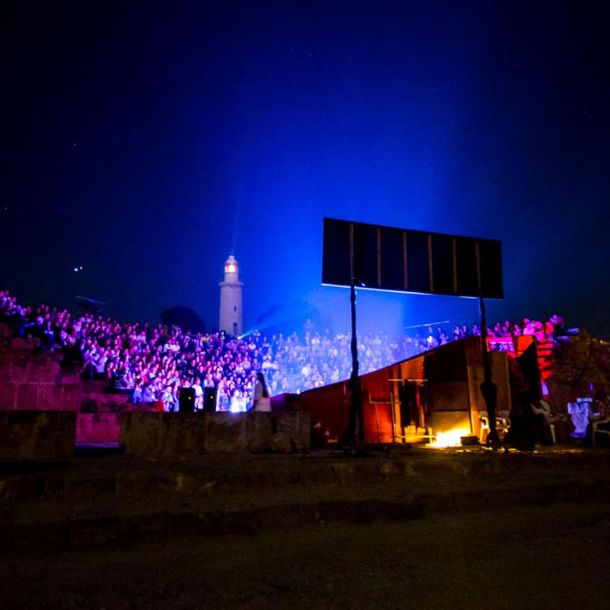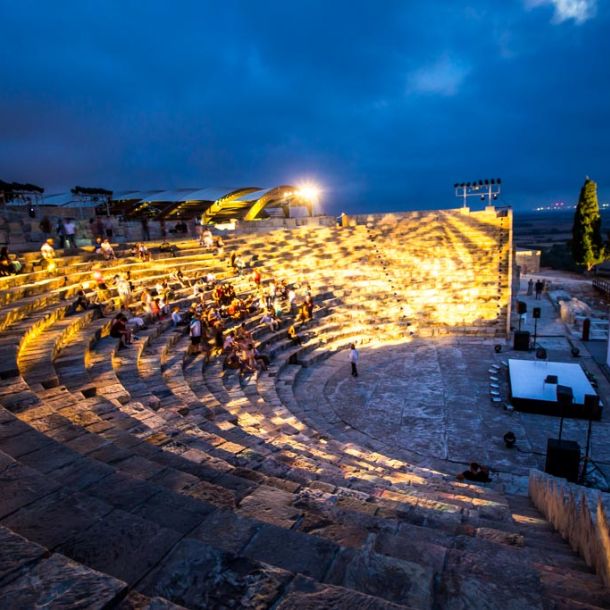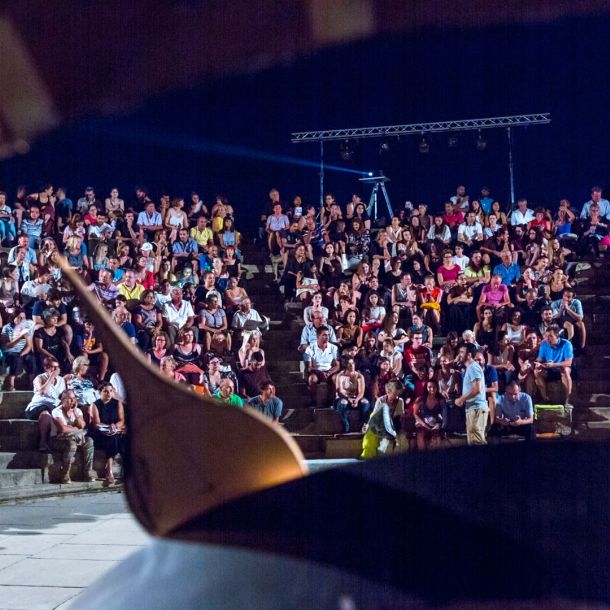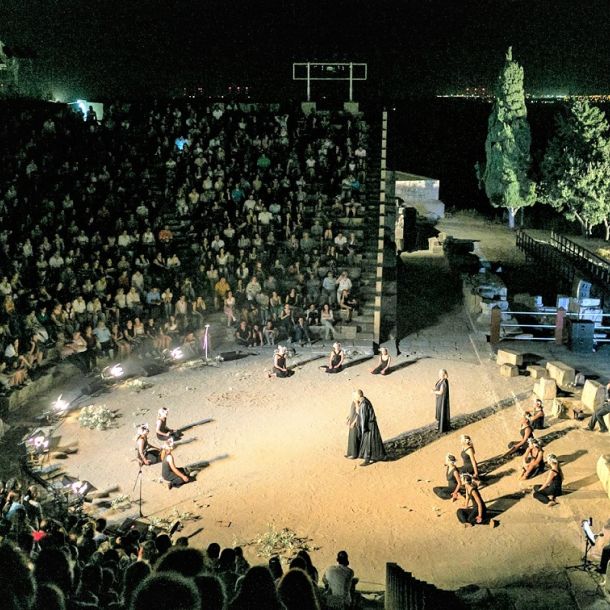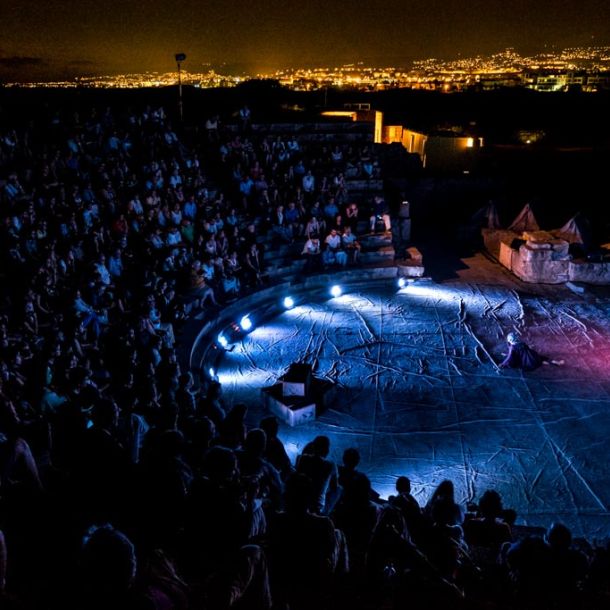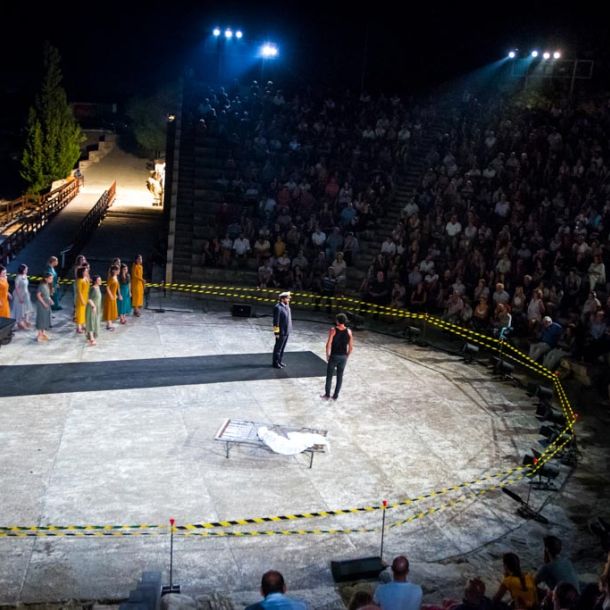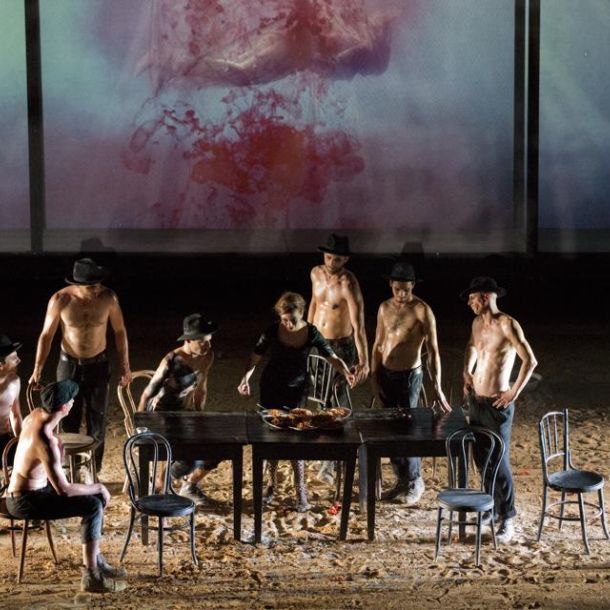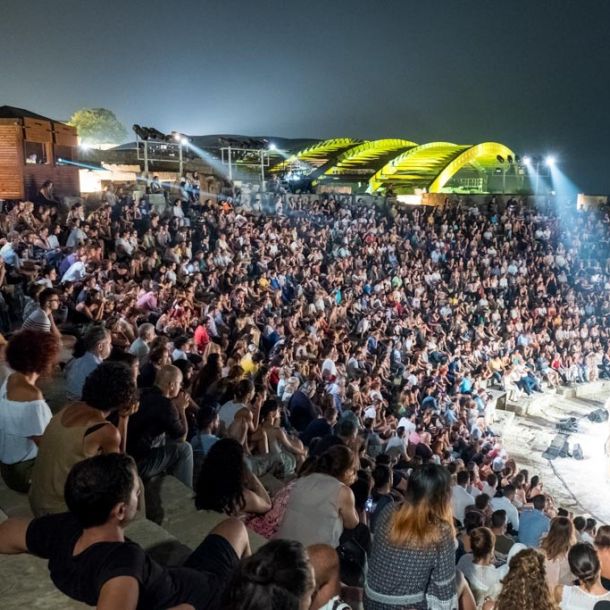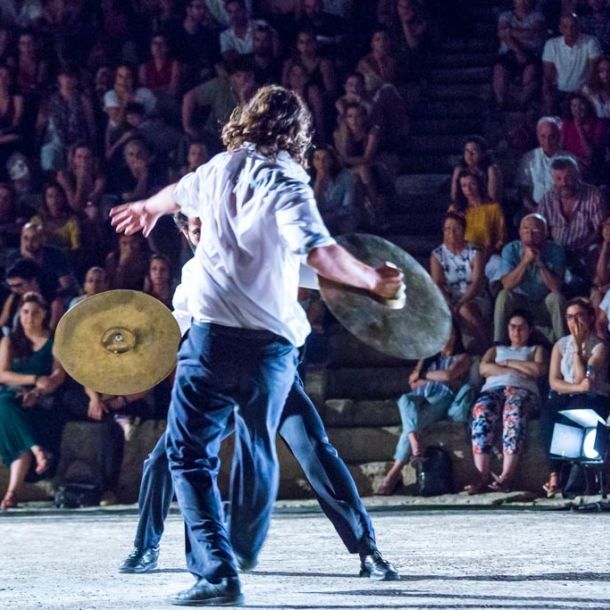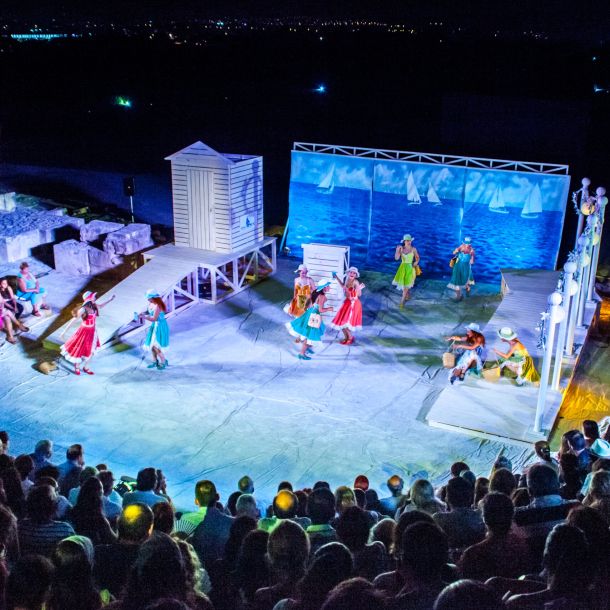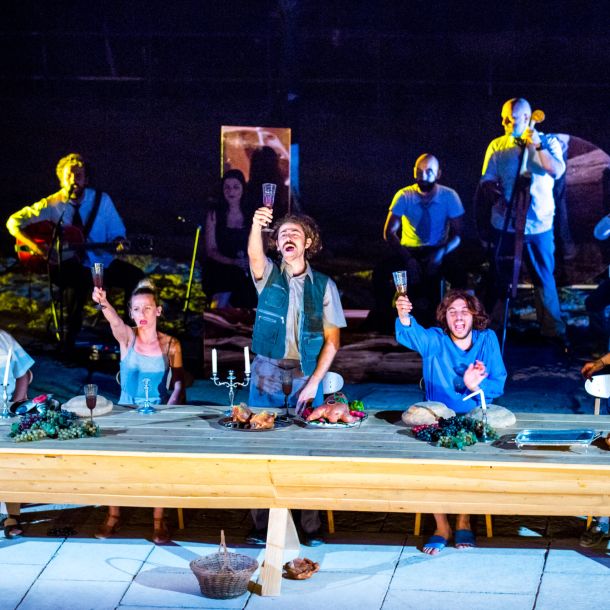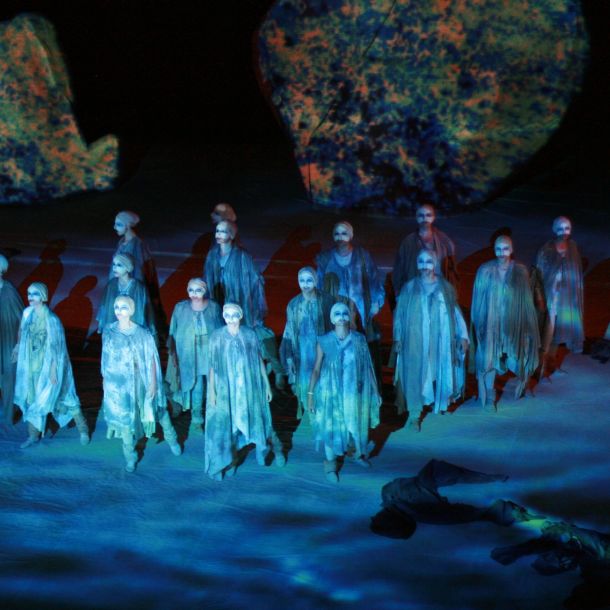INTERNATIONAL FESTIVAL OF ANCIENT GREEK DRAMA
In 1997, the Board of Directors of the Cyprus Centre of the International Theatre Institute (CCOITI), after a suggestion by the then director Nicos Shafkalis, when launching the “International Festival of Ancient Greek Drama” was motivated by the ambition to give ancient Greek drama a wider presence in the theatrical activities of the island and contribute to the building of theatrical sensibility among the people, by offering entertainment of a multi-cultural nature and high aesthetic standards. CCOITI’s belief has been that the ancient Greek drama constitutes the basis of the contemporary European drama and an element of the world cultural heritage, having direct relevance to today’s world.
Since its beginning, the “International Festival of Ancient Greek Drama” is yearly co-organised by the Deputy Ministry of Culture of the Republic of Cyprus, the Cyprus Centre of the International Theatre Institute and the Deputy Ministry of Tourism of the Republic of Cyprus.
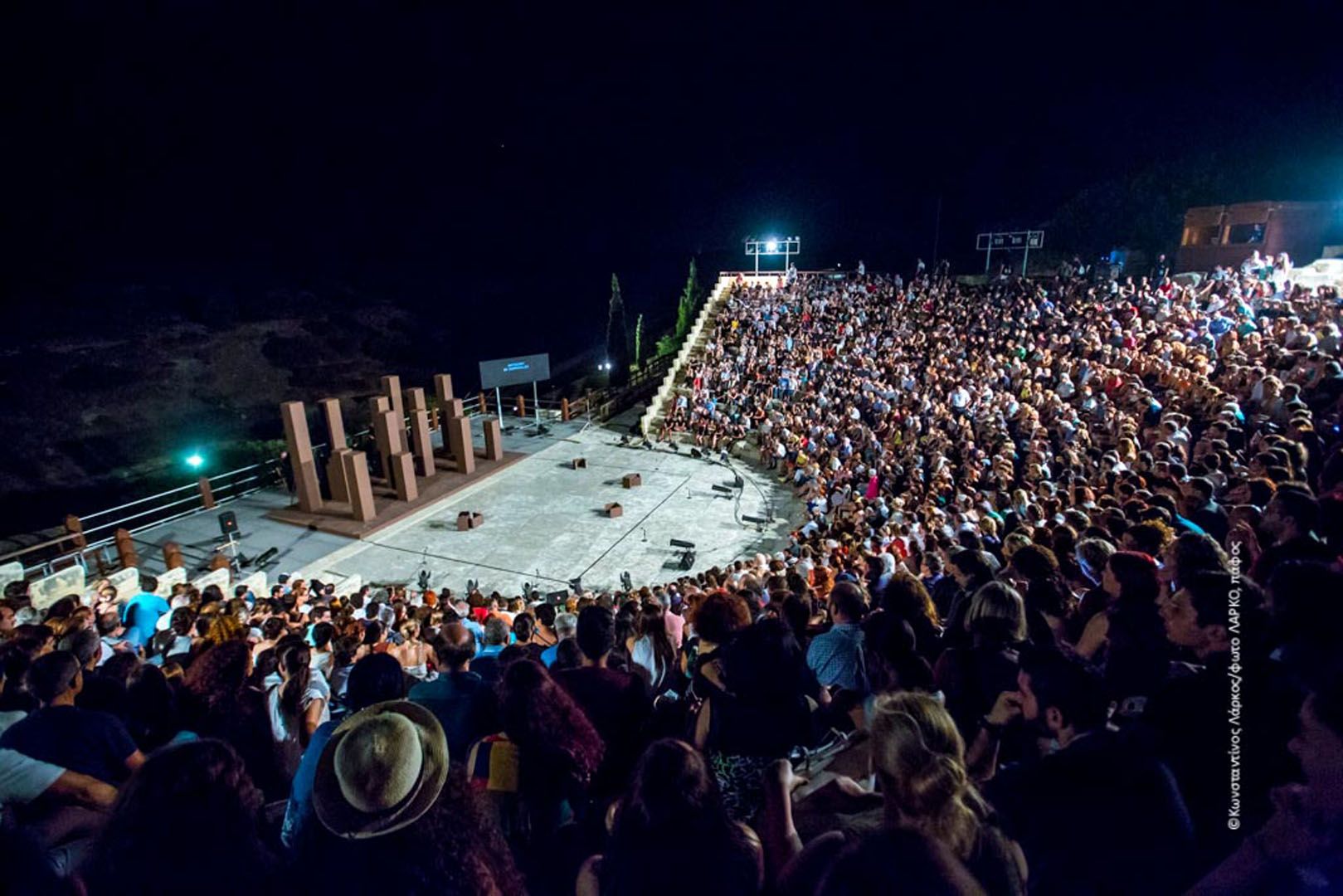
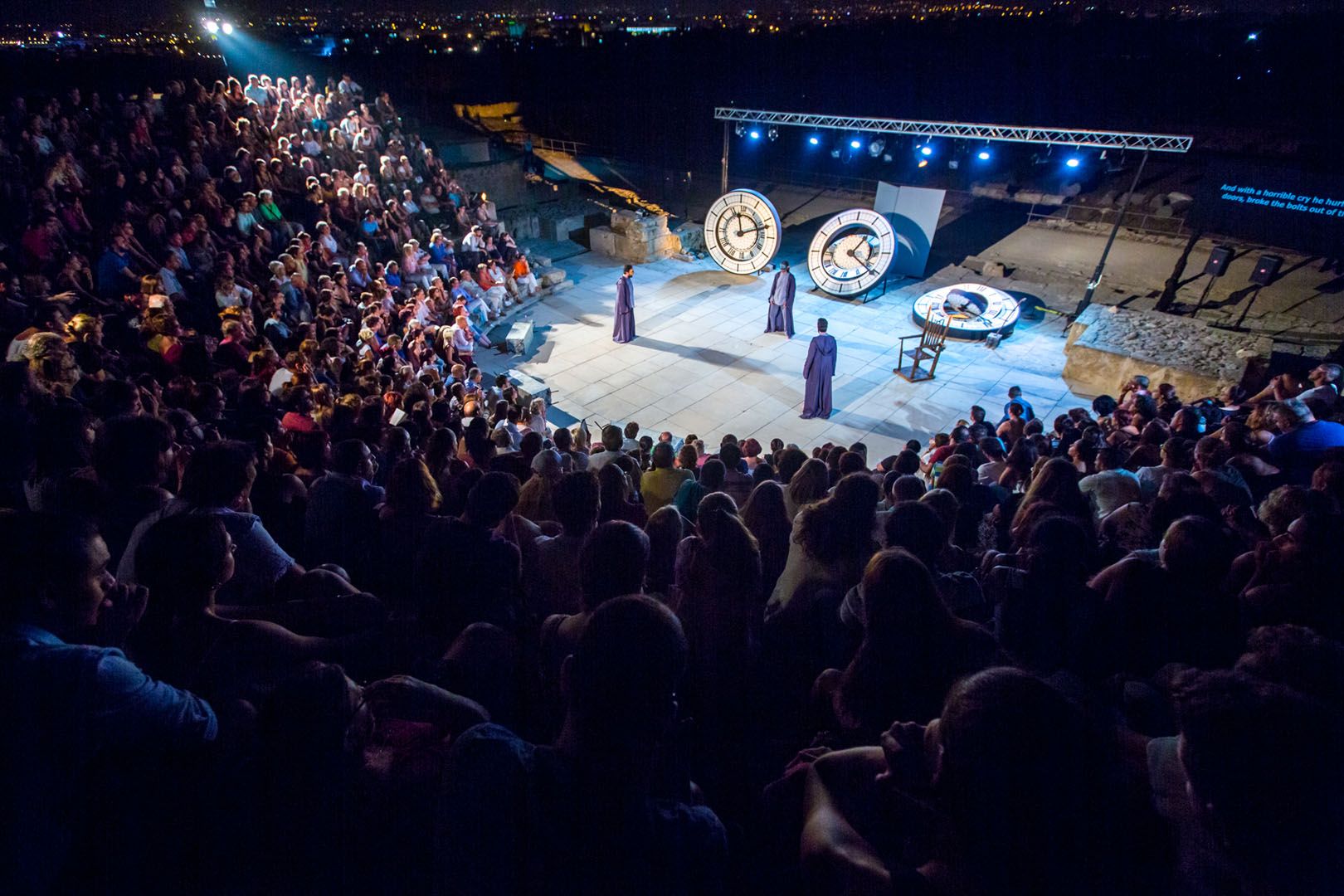
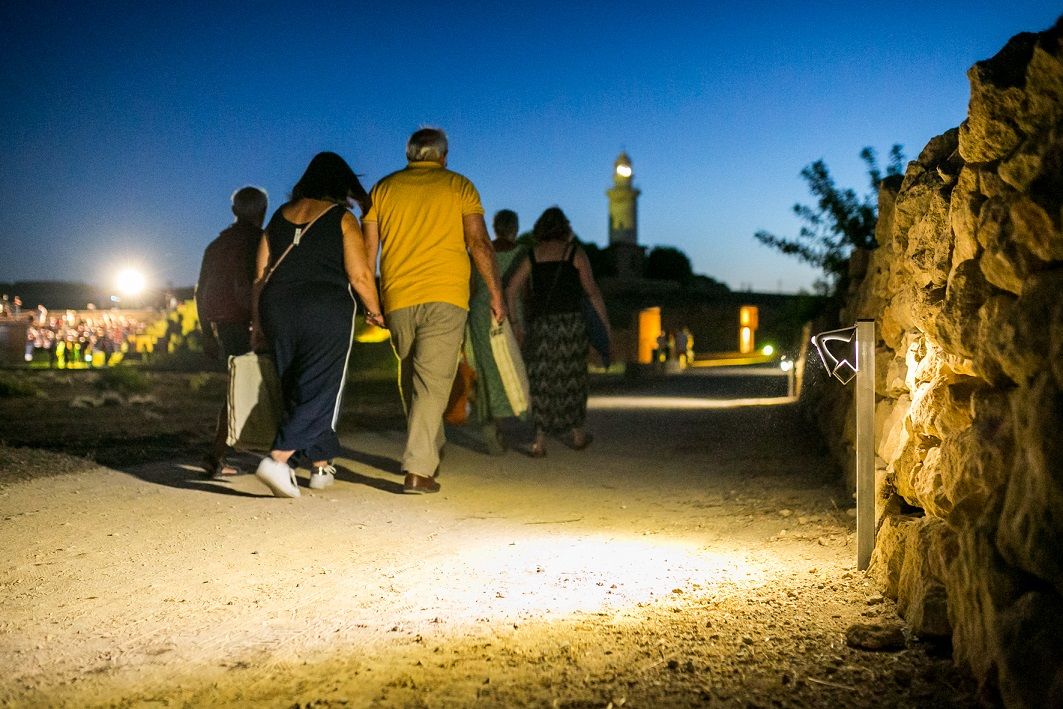
The ancient Greek drama affirms its presence in today’s world as a living form of theatre, never ceasing to challenge and puzzle theatre practitioners in their quest of new ways of appealing on modern audiences throughout the world. Proved to be a cultural event of international significance, the “International Festival of Ancient Greek Drama” has managed to draw theatre companies from various parts of the world, featuring ancient Greek drama as an integral part of the World Cultural Heritage.
Hosting performances from all over the world, the Festival provides a contemporary space for theatre directors and their inspired teams to present their interpretation of ancient Greek text in their own language, shading their own distinct cultural colour on stage while providing the wider public with access to high quality performances. The Festival has established international collaboration with more than 135 theatre groups, presenting productions from more than 24 countries such as Belgium, Bosnia and Herzegovina, Bulgaria, China, Croatia, Germany, Georgia, Greece, Hungary, Israel, Italy, Korea, Latvia, Portugal, Romania, Russia, Serbia, Slovenia, Spain, Sweden, U.K., U.S.A. and others, as well as Cyprus. Many of the performances are innovative in their approach, thus highlighting the timeless nature of ancient Greek drama and transferring at the same time, the unique cultural features of each country.
The performances are presented in open-air amphitheatres at archaeological sites, such as the Ancient Odeon in Paphos and the Curium Ancient Theatre in Limassol and in modern amphitheatres in Nicosia, such as the “Skali” Amphitheatre in Aglantzia and the Makarios III Amphitheatre.
Evaluating the long course of the Festival, it is safe to say that its objectives have been achieved to a satisfactory degree. Each year the festival grows, acquiring and enhancing its own multicultural and international character, hosting theatre groups coming from different cultural backgrounds and it is now widely acknowledged as one of the most important cultural institutions in Cyprus and abroad.
During the last years, the festival has been significantly developed: it has broadened its perspective, embracing the innovative through the timeless, the contemporary through the ancient, while it has expanded its audience in local and foreign spectators by surtitling the performances in Greek and English. The Festival has brought the artistic creation closer to the society, reaching the broad strata of society and has stepped in Cypriot creativity, while opening constructive dialogues with other countries.
The “International Festival of Ancient Greek Drama” has been honoured with the EFFE Label (2015-2016, 2017-2018 and 2019-2021), as one of Europe’s finest festivals.
From 2014 until 2017, all the performances of the “International Festival of Ancient Greek Drama” were included in the official program of the “European Capital of Culture – Pafos2017”, while the 2018’s Festival edition was part of the celebrations of the European Year of Cultural Heritage, 2018.
